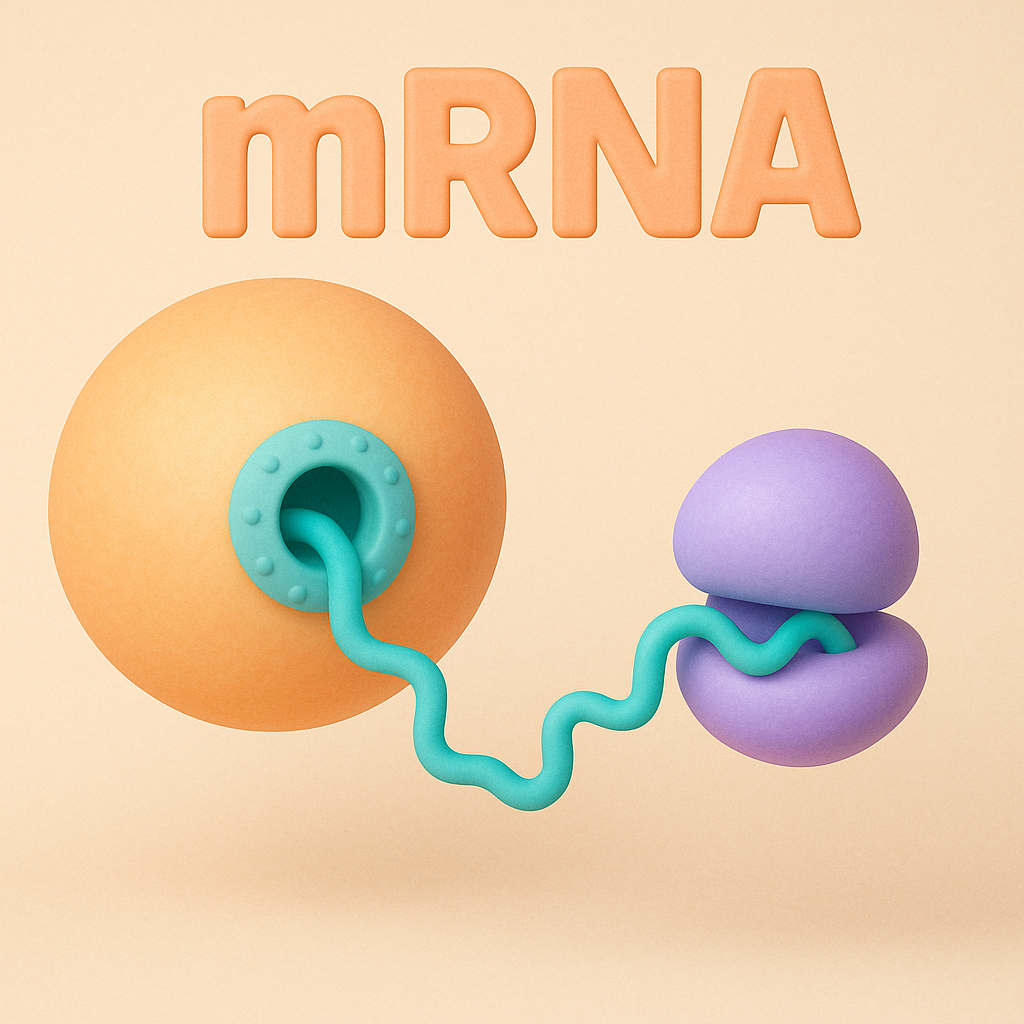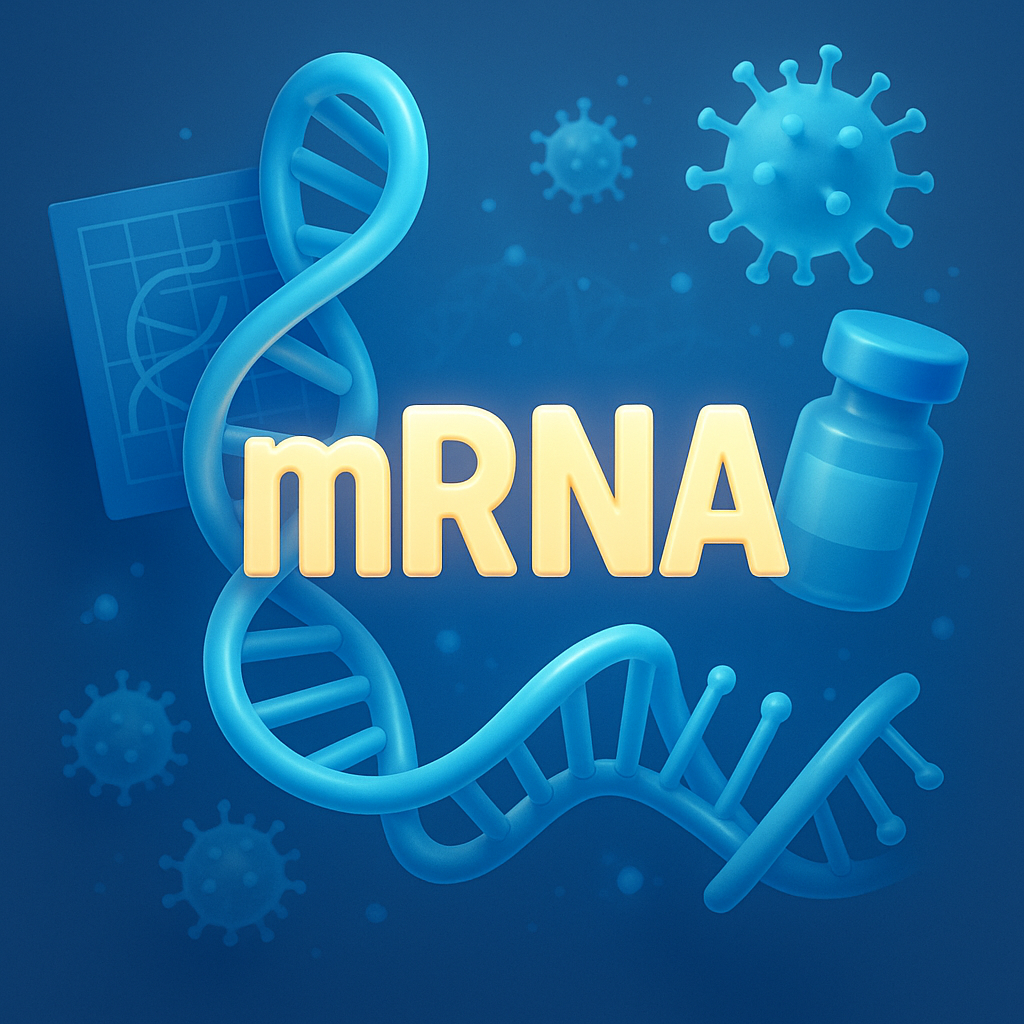mRNA
Definition
mRNA (messenger RNA) is a noun referring to a single-stranded ribonucleic acid molecule that carries a copy of genetic information from DNA to the ribosome, where it serves as a template for protein synthesis.
Parts of Speech
- Noun (abbreviation)
Pronunciation
American English
- IPA: /ˌɛm.ɑːrˈɛn.eɪ/
- Respelling: EM-ahr-EN-ay
British English
- IPA: /ˌem.ɑːˈɛn.eɪ/
- Respelling: EM-ah-REN-ay
Etymology
Mid 20th century: abbreviation of messenger RNA, coined after discovery of RNA’s role in carrying genetic code from nucleus to cytoplasm.
Derivatives
- messenger RNA (noun)
- mRNAs (plural)
- mRNA-encoded (adjective)
Synonyms
- messenger ribonucleic acid
Antonyms
- None
Usage
Noun: The noun "mRNA" is used in molecular biology, biotechnology, and medical contexts to refer to the transient RNA copy of a gene used for protein production. For example, "The Pfizer–BioNTech COVID-19 mRNA vaccine uses lipid nanoparticles to deliver mRNA encoding the viral spike protein," or "Researchers optimize mRNA stability to improve translation efficiency in cultured cells."
Related Terms
- tRNA: Transfer RNA that brings amino acids to the ribosome.
- rRNA: Ribosomal RNA that forms the core of the ribosome’s structure and catalytic activity.
- Transcription: The process of synthesizing RNA from a DNA template.
- Translation: The process of synthesizing protein from an mRNA template.
- Codon: A sequence of three nucleotides in mRNA that specifies an amino acid.
Detailed Definitions
Noun
- A single-stranded RNA molecule transcribed from DNA that carries genetic instructions to the ribosome – functions as the template for assembling amino acids into proteins.
- Example: "After transcription, the mRNA exits the nucleus and binds to ribosomes in the cytoplasm."
- An intermediate molecule in gene expression used in biotechnology and vaccine development – engineered mRNA can be delivered into cells to produce therapeutic proteins or antigens.
- Example: "Synthetic mRNA platforms enable rapid design of vaccines against emerging pathogens."
mRNA








